In this blog I'm sharing my top 5 tried and true natural cleaning materials and their uses. Learn how to simplify your cleaning routine and sanitise your home without harsh chemicals.
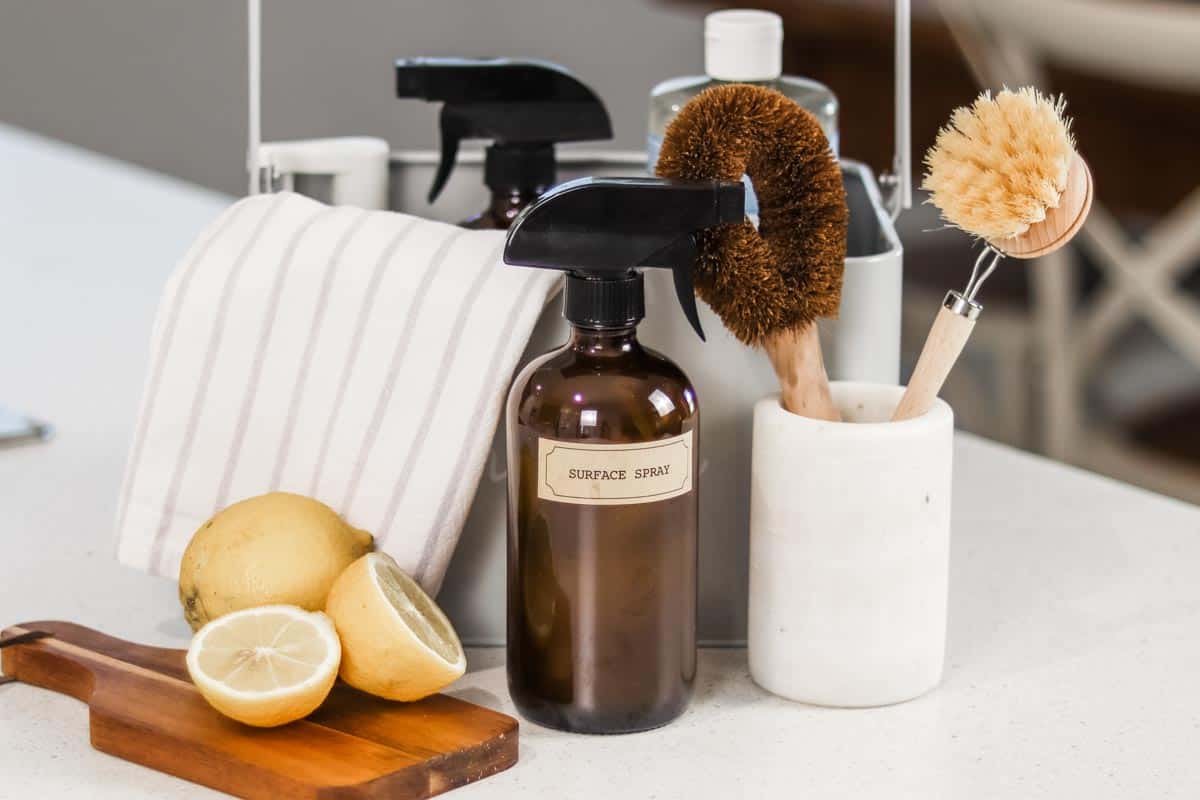
Jump to:
- Benefits of switching to natural cleaning materials
- My favourite natural cleaning materials and their uses
- Baking Soda (sodium bicarbonate)
- Liquid Castile soap
- Eucalyptus oil
- Vinegar
- Water
- Watch the video tutorial: Top 5 Natural Cleaning Materials (and how to use them)
- Creating your own natural cleaning routine
- What about the germs?
- My top tips
- Comments
Cleaning and I, we have a love hate relationship. I enjoy having a clean home, but as a mumma of two youngsters, the struggle is real. If you're reading this blog, I'm sure it's because you feel it too.
At the grocery store there seems to be a different product for every part of your home, adding to the complexity of everyday life. Not to mention the long list of harsh chemicals and health warnings printed on the labels.
We now know that exposing our skin and airways to these products can be harmful to our health and they're not so great for the environment either, especially considering most products are sold in single use plastic packaging.
Benefits of switching to natural cleaning materials
- Reduce the number of toxins in your home
- Simplify your cleaning routine
- Reduce waste
- Save money
- Customise and make it your own
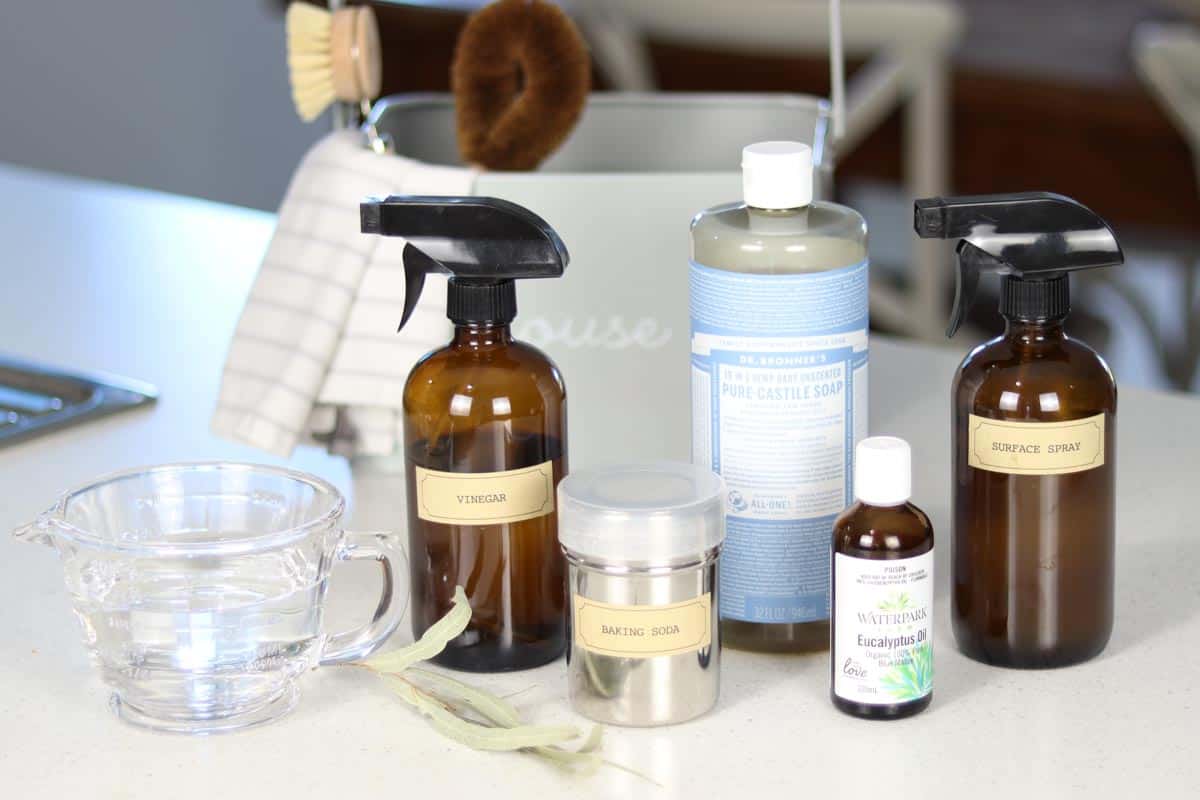
It wasn't until I became a mum that I started to realised just how dangerous many of these products were, and started searching for more gentle, yet equally effective alternatives. This article by Healthline goes into more detail about the health risks associated with some modern cleaning products.
The good news is that research has shown that antibacterial cleaning products are no better at eliminating bacteria than regular soap and warm water. So it's absolutely possible to make the switch to natural cleaning materials and still maintain a clean and healthy home.
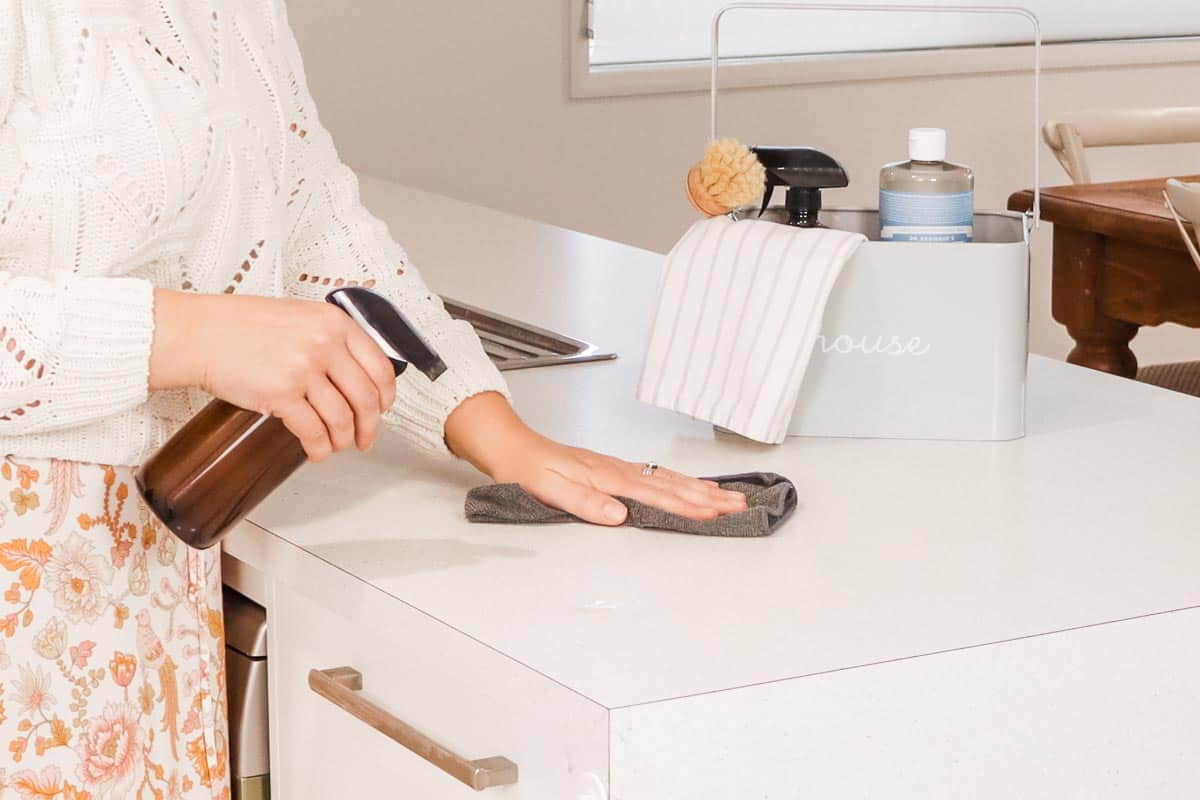
My favourite natural cleaning materials and their uses
I now use five simple natural materials to clean and sanitise my home; Castile soap, water, vinegar, eucalyptus oil and baking soda. In this blog I'll step you through their uses, and where you can get them.
Baking Soda (sodium bicarbonate)
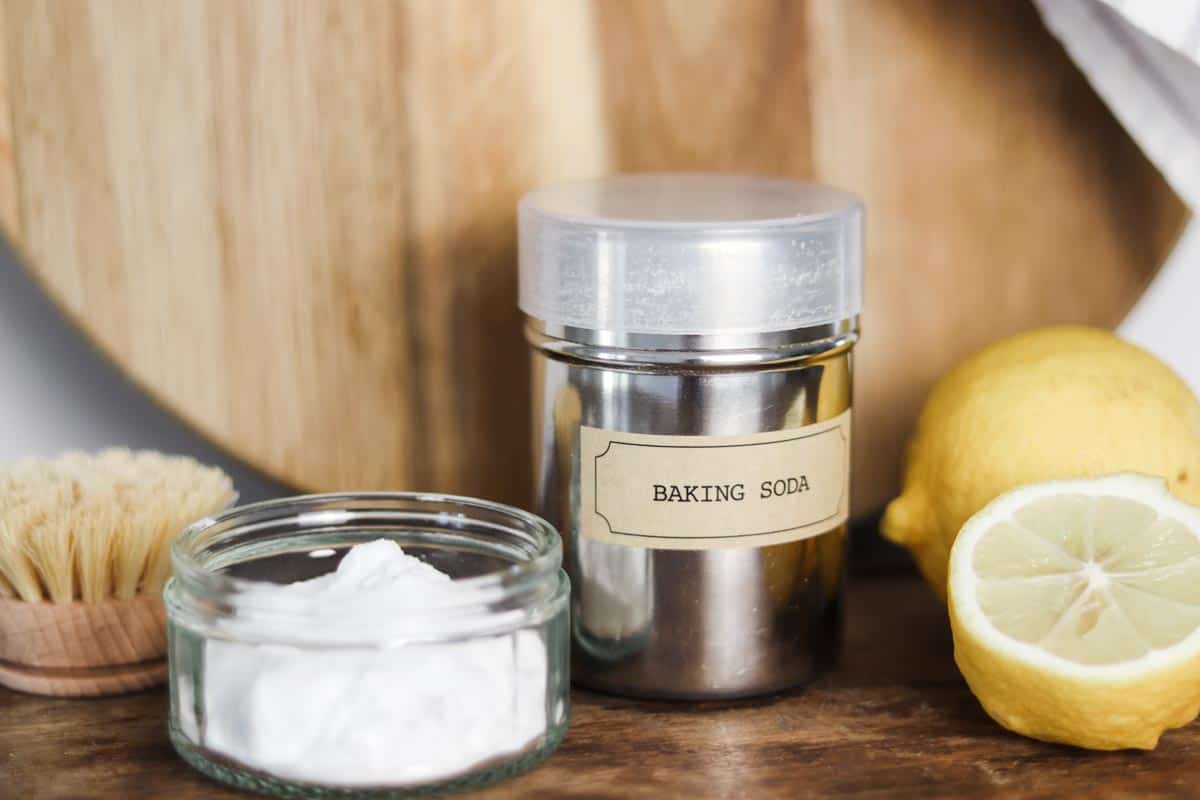
I like to keep baking soda in a sugar shaker so I can easily sprinkle it around.
Baking soda neutralises odours and can be put in shoes, placed in a bowl in the fridge, or sprinkled over carpet and vacuumed to eliminate bad smells. It's even better than air freshener because it actually eliminates odours rather than just masking them.
It's also a great gentle abrasive for scrubbing jobs. Make a cleaning paste by mixing a couple of it with a little water or Castile soap.
Sprinkle a little bicarb soda over your stove top and scrub with half a lemon. Give the lemon a squeeze to release the juice and wipe with a wet washcloth.
Baking soda also works well for scorched pans. Sprinkle a little over, and fill with boiling water. Leave overnight and scrub clean. For really tough stains add vinegar and scrub well.
You'll find baking soda at the grocery store or you can buy it in bulk online.
Liquid Castile soap
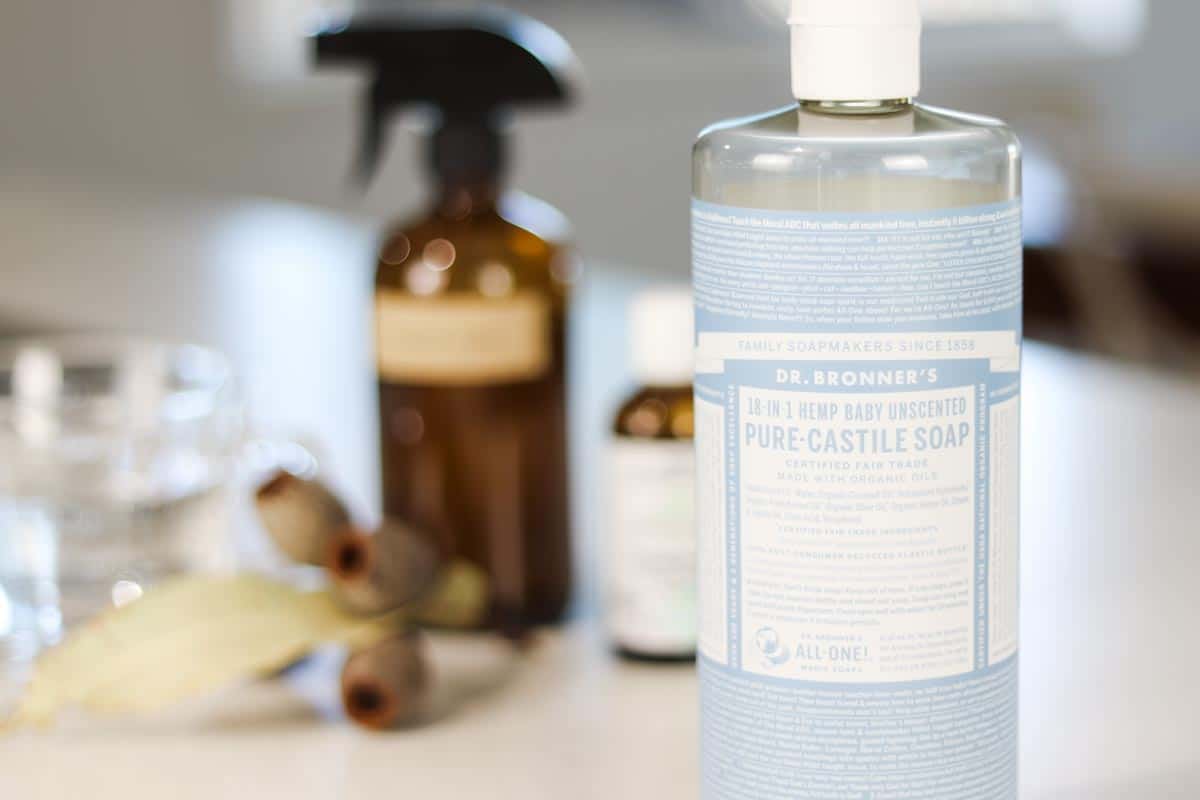
I recently shared my love of liquid Castile soap in my blog post How to use Castile soap as hand soap.
To make a simple eucalyptus cleaning spray, dilute 1 part liquid Castile soap with 10 parts distilled water. Then add 10 - 20 drops of Eucalyptus oil for added germ busting power.
I use this one cleaning spray everywhere; on my kitchen benches, dining table, spills on the lounger, you name it.
If you're lucky you can source liquid Castile soap locally from an artisan soap maker.
Dr. Bronners Pure Castile Liquid Soap is another popular brand you can buy online, or at many pharmacies and health food stores.
If you prefer to buy Australian made, try Biome Unscented Liquid Castile Soap.
Eucalyptus oil
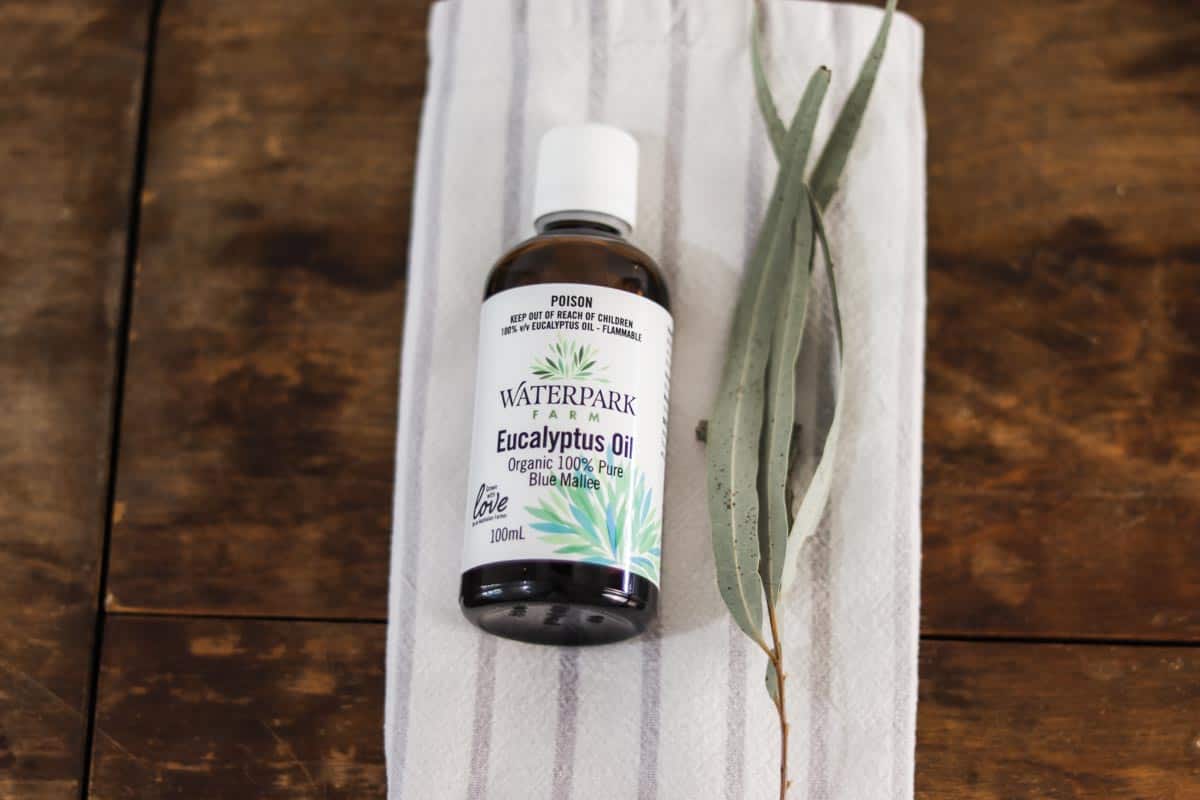
Eucalyptus oil has been proven to kill germs like Salmonella and E. Coli so it's great for cleaning high use areas like the kitchen where food preparation takes place.
Create a simple eucalyptus cleaning spray by diluting 1 part liquid Castile soap with 10 parts distilled water and adding 10 - 20 drops of Eucalyptus oil.
Paper towel and eucalyptus oil be used to remove sticky residues like sticky labels from glass bottles.
I'm lucky enough to have a local farm that produces eucalyptus oil I can buy from the farmer's markets. You can also buy eucalyptus oil from chemists, the grocery store on Amazon.
Australian made, try Dindi Naturals or Waterpark Farm.
Vinegar
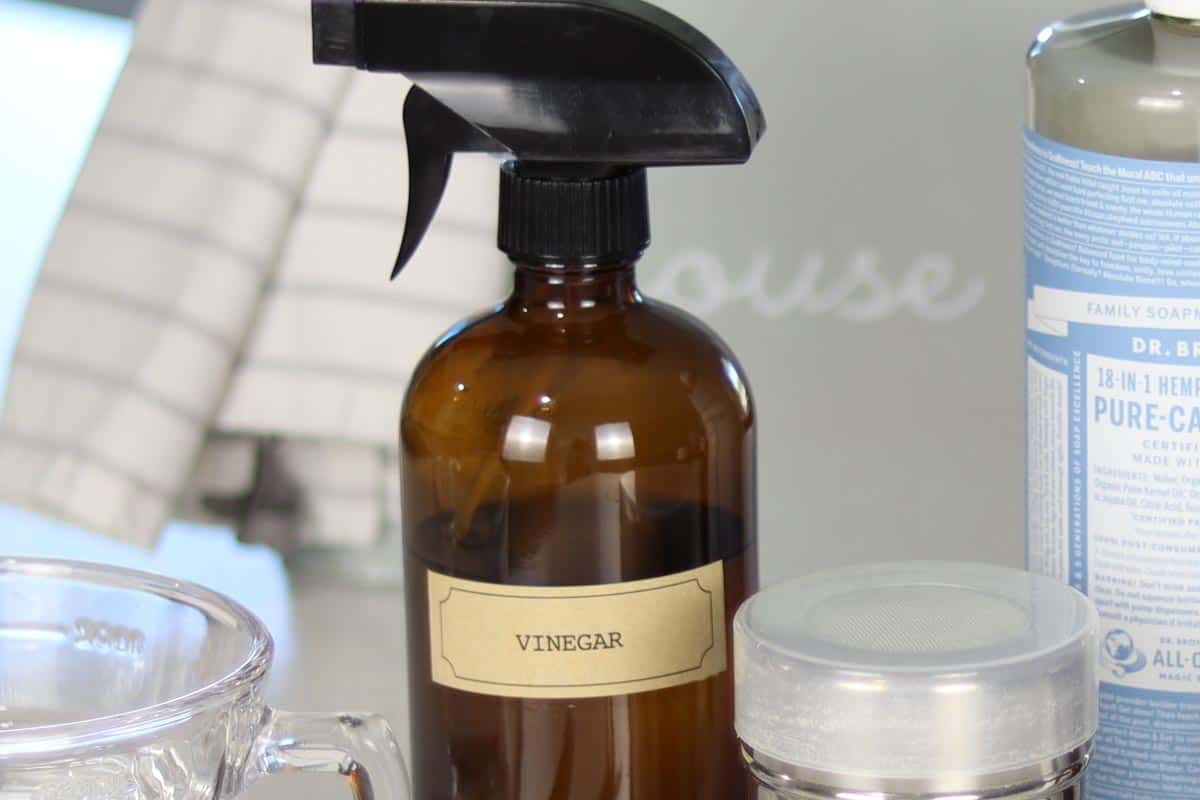
Vinegar is simply acetic acid diluted with water and is a great cleaner and disinfectant.
It's best to use distilled white vinegar as it doesn't contain any colourings or organic particles.
I keep a spray bottle of vinegar to use a mould killer in the bath and shower, surface spray to lift stains from the kitchen bench (but can't be used on natural stone), and general cleaner for the toilet.
Vinegar can also be used to replace rinse aid in your dishwasher and in place of laundry softener.
Vinegar is readily available at the grocery store.
Water
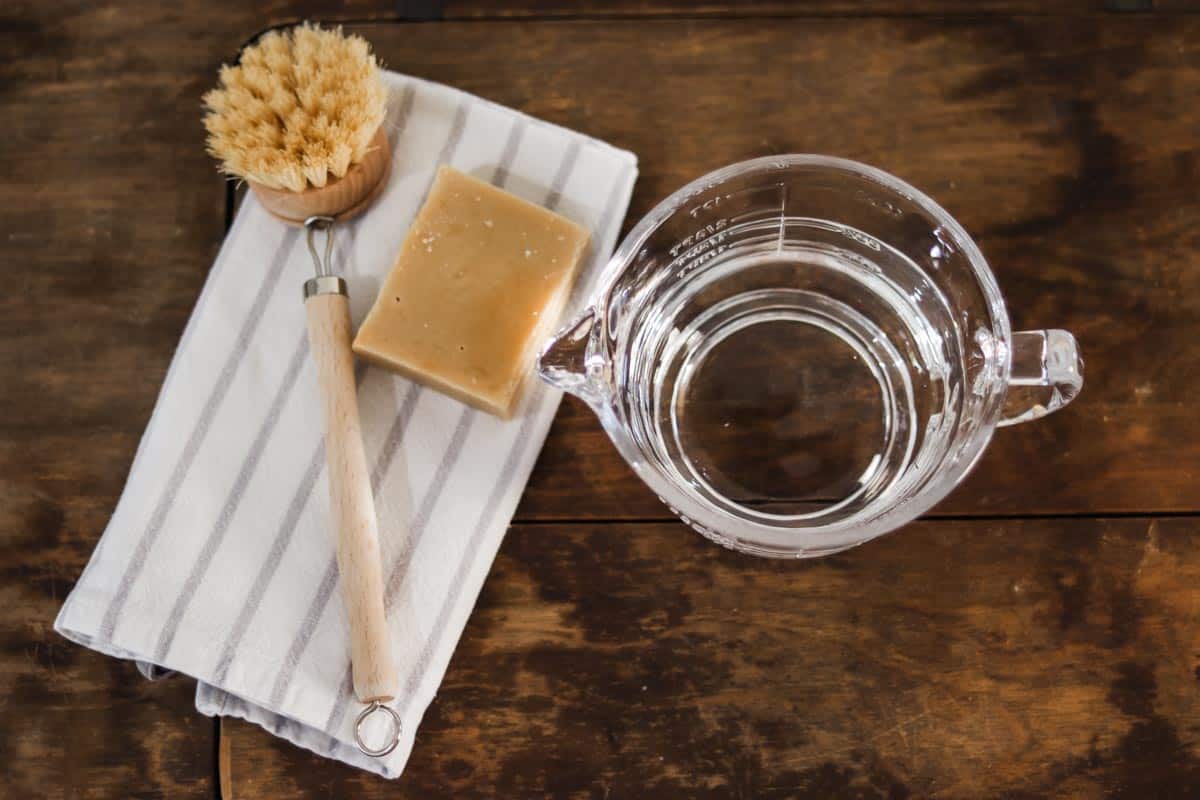
Believe it or not, plain old water has secret cleaning super powers, especially when combined with cleaning fibres and heat.
To clean my bathrooms and mirrors I use Enjo cleaning cloths with water only. I have the Bathroom Mini and Bathroom Miracle which work perfectly. The fibres do all the hard work by physically removing dirt and bacteria. After cleaning I simple wash the cloths on a warm cycle and they're ready to use again and again.
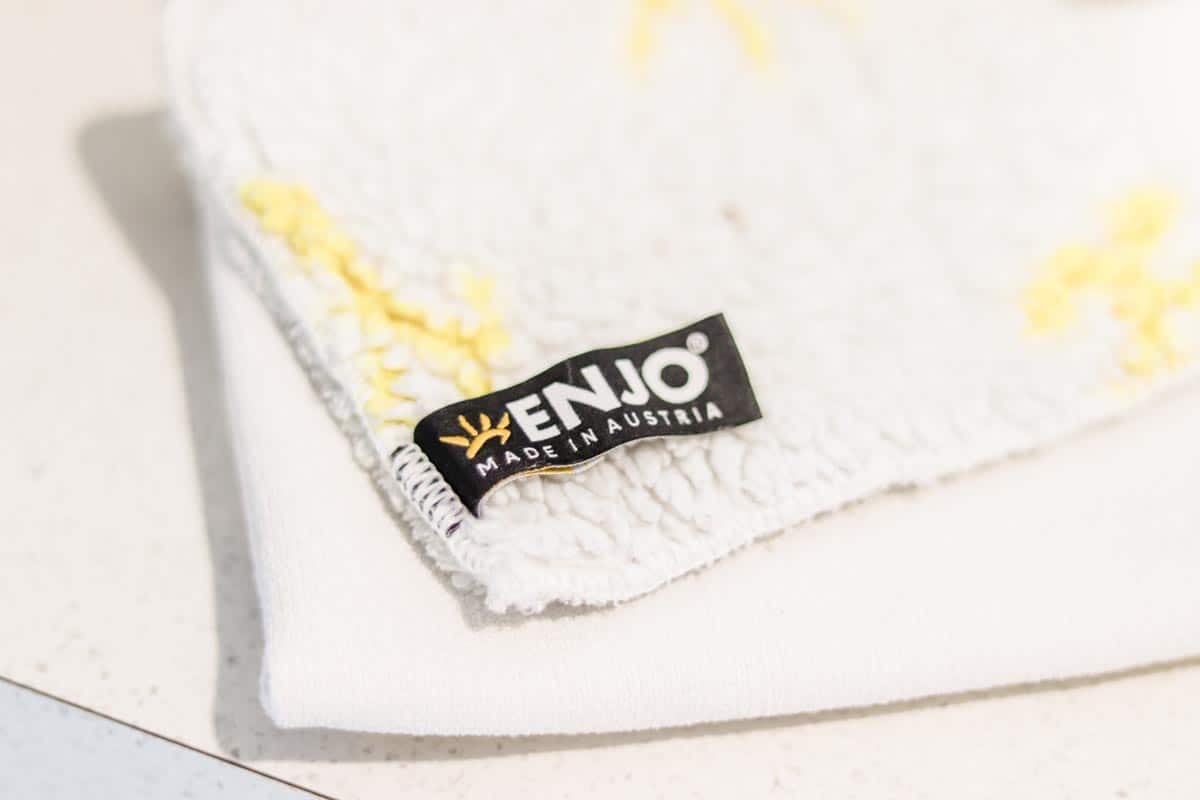
We also like to harness the power of steam to clean our home without the use of added chemicals. We use a steam mop to clean our tile floors and have a handheld garment steamer to sanitise upholstery and mattresses. It kills dust mites too!
I recommend the Kmart Steam Mop and Kambrook Swiftsteam steamer.
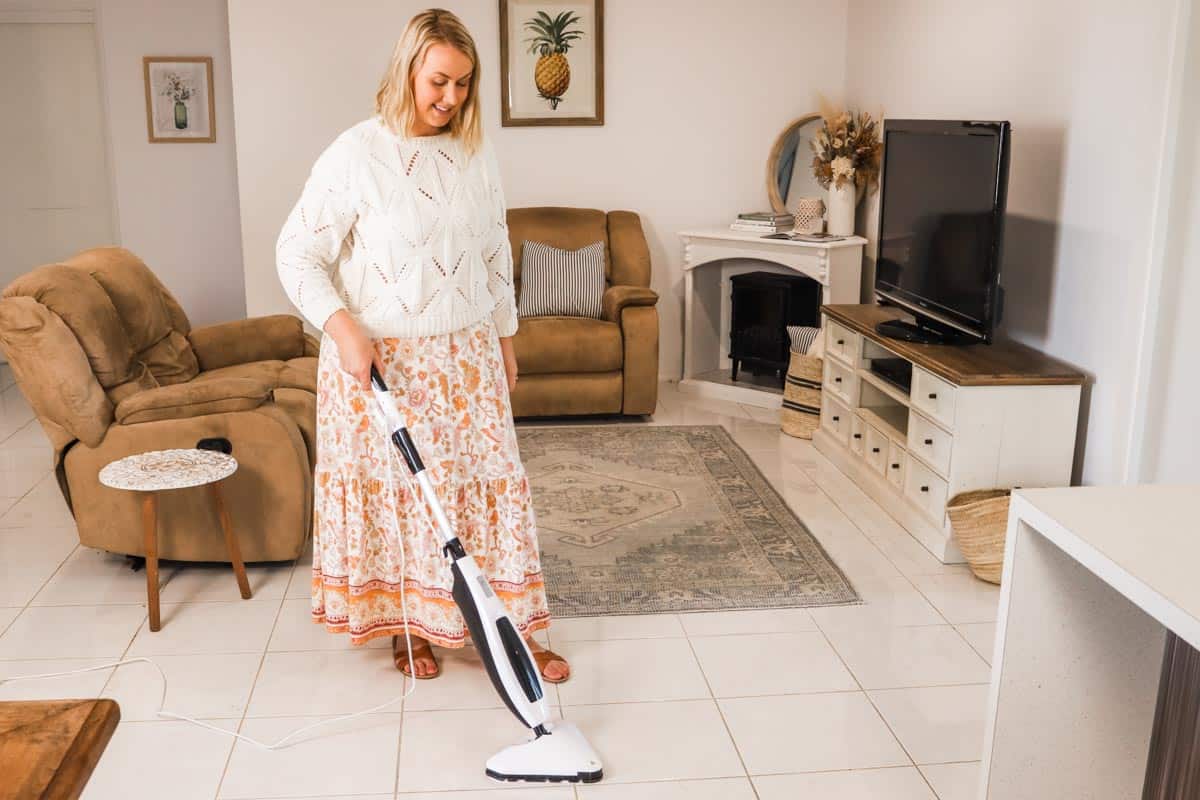
Watch the video tutorial: Top 5 Natural Cleaning Materials (and how to use them)
Creating your own natural cleaning routine
What about the germs?
Cleaning product companies have made a mountain out of a molehill when it comes to germs, and with good reason; that's how they make their money. After all, if we're not scared of germs, we wouldn't buy their super-strength, hospital-grade disinfectants.
But the fact is we're not running hospitals and unless you're dealing with an infectious disease (and in which case please follow the Doctor's orders), it's fine to simply clean and sanitise our homes on a regular basis, rather than disinfecting with powerful antimicrobials.
In fact evidence suggests that antibacterial cleaning products are no better at eliminating bacteria than regular soap and warm water, and their use may be contributing to the the growth of 'super bugs' or antibiotic resistant organisms, which is bad news!
This blog by Enjo gives a good explanation on the difference between cleaning and disinfecting, incase you're interested.
My top tips
- Even though these materials are natural, and some even edible, keep your cleaning supplies separate to avoid cross contamination.
- Always keep cleaning products out of reach of children; even natural products can irritate the eyes or skin, or be toxic if ingested.
- Prevention is better than cure; cleaning regularly keeps bacteria to safe levels and prevents tough built up grime.
- Oven cleaners are the worst. To keep your oven clean cover roasts or use a bench top roaster which is easy to clean with soap and water.
If you're thinking about making the switch to natural cleaning products I'd encourage you to make one simple change today, or this week, towards where you want to be.
Maybe it will be grabbing some extra baking soda and vinegar in this week's shop, or making Castile soap hand wash or eucalyptus cleaning spray.
Whatever it is, enjoy the process of trying something new and reducing the toxins in your home.
Thanks for following along.
Ready to make the switch to natural cleaning products? Check out my natural foaming hand soap and eucalyptus cleaning spray recipes!

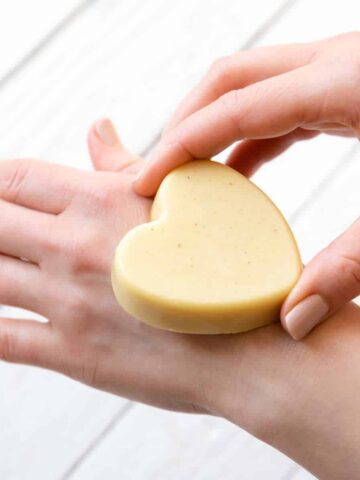
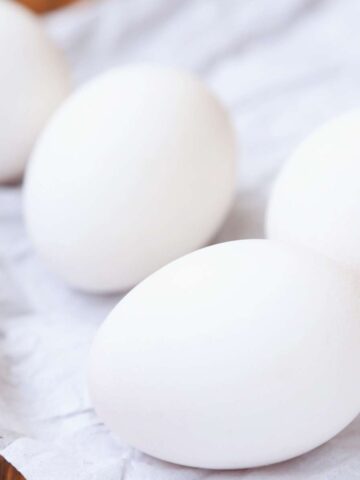
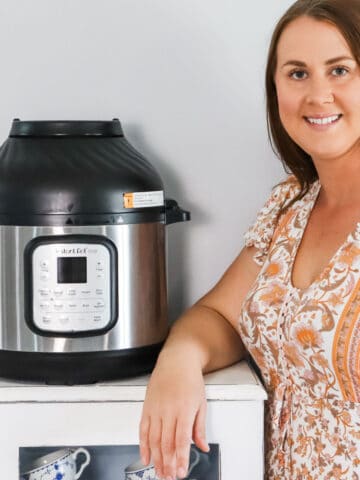
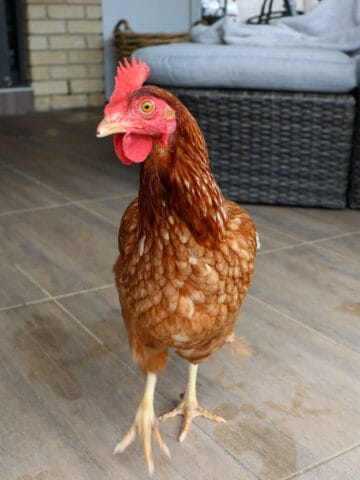
Comments
No Comments